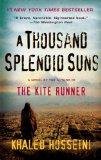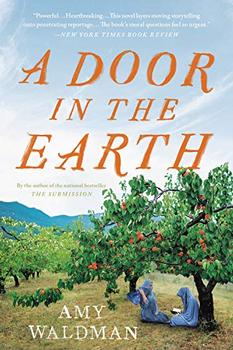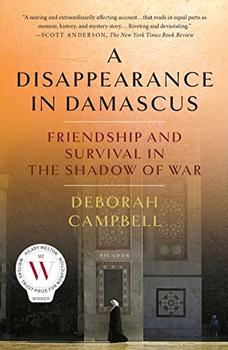Summary | Excerpt | Reading Guide | Reviews | Beyond the book | Read-Alikes | Genres & Themes | Author Bio

At once an incredible chronicle of thirty years of Afghan history and a deeply moving story of family, friendship, faith, and the salvation to be found in love.
Propelled by the same superb instinct for storytelling
that made The Kite Runner a beloved classic, A Thousand Splendid Suns
is at once an incredible chronicle of thirty years of Afghan history and a
deeply moving story of family, friendship, faith, and the salvation to be found
in love.
Born a generation apart and with very different ideas about love and family,
Mariam and Laila are two women brought jarringly together by war, by loss and by
fate. As they endure the ever escalating dangers around them - in their home as
well as in the streets of Kabul - they come to form a bond that makes them both
sisters and mother-daughter to each other, and that will ultimately alter the
course not just of their own lives but of the next generation. With
heart-wrenching power and suspense, Hosseini shows how a woman's love for her
family can move her to shocking and heroic acts of self-sacrifice, and that in
the end it is love, or even the memory of love, that is often the key to
survival.
Some readers may find A Thousand Splendid Suns a little too melodramatic and sentimental for their tastes. This reviewer started off cynical but was entirely won over by the end - starting the book in the evening and waking up before dawn to finish it, reading by fading flashlight as the sun rose and the pages blurred through the tears...continued
Full Review
 (1008 words)
(1008 words)
(Reviewed by BookBrowse Review Team).
Afghanistan lies on the historically important trading routes between the Middle East and the Indian sub-continent. As a result of numerous invasions and migrations it is made up of many different ethnic groups including Baluch, Chahar Aimak, Turkmen, Hazara, Pashtun, Tajik, Uzbek, Nuristani, Arab, Kirghiz, Pashai and Persian.
Historically, the Pashtun nationality has been the most dominant representing about 50% of the total population. Islam was brought to Afghanistan in the eighth century by Arabs, and the vast majority of the country today are Muslims. After Arab rule there was a period of relative independence when semi-independent states began to form, but these were crushed by the Mongol invasions of the 13th century. Following the ...

If you liked A Thousand Splendid Suns, try these:

by Amy Waldman
Published 2020
For readers of Cutting for Stone and The Reluctant Fundamentalist, a "breathtaking and achingly nuanced" (Kirkus, starred review) new novel from the author of the national bestseller The Submission about the journey of a young Afghan-American woman trapped between her ideals and the complicated truth.

by Deborah Campbell
Published 2018
In the midst of an unfolding international crisis, renowned journalist Deborah Campbell finds herself swept up in the mysterious disappearance of Ahlam, her guide and friend. Campbell's frank, personal account of a journey through fear and the triumph of friendship and courage is as riveting as it is illuminating.
Winner of the Hilary Weston ...